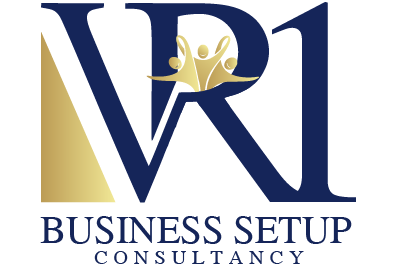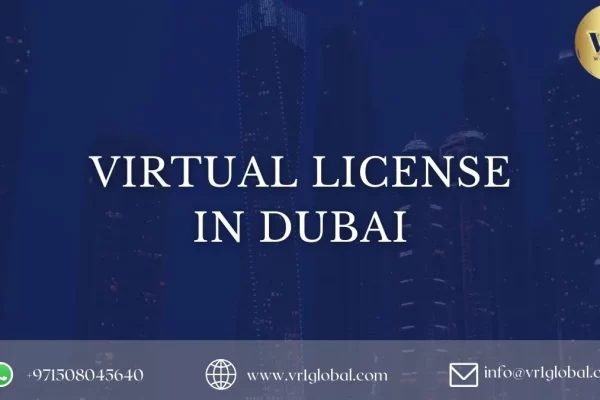Latest Business Rules and Regulations in Dubai
If you are searching for “Business Rules & Regulations in Dubai”, then I am sure, you are a New Business owner in Dubai or planning to start a Business here in Dubai.
Imagine this for a second, you are new to Dubai, it means that your business is new, the market is new & even the rules are different from the country you operate.
This leads to multiple legal, operational & linguistic challenges over time leading limiting the growth of your Business.
To overcome this struggle, all you have to do is, understand the rules & regulations of Dubai and operate your Business within its rules & regulations.
I hope now you understood the weight of the situation, now let us understand the Business Rules & Regulations in Dubai.
In this article, we will clearly give you an in-depth overview of the below concepts
- Types of Business Entities
- Legal Structures of Business Entities
- Overview of DED in Dubai
- Local Sponsorship and Partnership Requirements
- Taxation in Dubai: What You Need to Know
- Labor Laws in Dubai
- Intellectual Property Laws in Dubai
- Health and Safety Regulations
- Environmental Laws in Dubai
Company Formation Process in Dubai
If you are currently not started any Business in Dubai and have yet to start the process, then this is for you. Starting a business in Dubai requires a thorough understanding of the legal requirements and procedures involved.
The process of setting up a company in Dubai involves several steps, including
- company registration,
- obtaining a trade license, and
- fulfilling local sponsorship and partnership requirements.
And much more…
It is advisable to seek professional assistance from a reputable business consultant or legal advisor to guide you through the process.
In addition to this process, you need to know the types of Business Entities that currently exist in Dubai.
Now let us find out about each of the Business entities in Detail and understand which one suits you the best.
Types of Business Entities in Dubai: Which One Suits You?
Dubai offers several types of business entities that entrepreneurs can choose from, depending on their business objectives and requirements.
These include sole proprietorship, partnership, limited liability company (LLC), branch office, and representative office.
Each business entity has its own advantages and disadvantages, and it is essential to choose the right one that suits your business needs.
1. Sole Proprietorship:
A Sole Proprietorship is a business owned and operated by a single individual. This type of entity is the simplest and least expensive form of business in Dubai. It is suitable for small businesses that have limited capital and are owned by a single person. However, the owner is personally responsible for all the liabilities and debts of the business.
Benefits:
- Simple and easy to set up
- Low cost
- Full control of the business by the owner
- Minimal reporting requirements
Setup Process:
- Register with the Department of Economic Development (DED)
- Obtain necessary permits and licenses
- Apply for a trade name
- Obtain a commercial license
Pros:
- Easy to set up and maintain
- Minimal reporting requirements
- Full control of the business by the owner
- Low cost
Cons:
- Unlimited personal liability
- Difficulty in obtaining credit or financing
- Limited ability to raise capital
2. Partnership:
A Partnership is a business owned by two or more persons who share the profits and losses. There are two types of partnerships in Dubai, namely general partnerships and limited partnerships.
Benefits:
- Shared responsibilities and risks among partners
- Easier to raise capital compared to a sole proprietorship
Setup Process:
- Choose a partner or partners
- Register with the DED
- Obtain necessary permits and licenses
- Apply for a trade name
- Obtain a commercial license
Pros:
- Shared responsibilities and risks among partners
- Easier to raise capital compared to a sole proprietorship
- Greater potential for growth and expansion
Cons:
- Unlimited personal liability for general partners
- Limited liability for limited partners
- Difficulty in decision-making due to multiple owners
3. Limited Liability Company (LLC):
A Limited Liability Company (LLC) is a popular business entity in Dubai. It offers the advantages of both a corporation and a partnership. An LLC is suitable for small to medium-sized businesses with two or more members.
Not to mention, this is the most popular type of Business Entity in Dubai, 73% of the entrepreneurs who start their Business in Dubai, operate their Business in LLCs.
Benefits:
- Limited liability for members
- Flexible ownership structure
- Easier to raise capital compared to a sole proprietorship
Setup Process:
- Choose a business activity
- Register with the DED
- Obtain necessary permits and licenses
- Draft and sign a Memorandum of Association (MOA) and a Local Service Agent (LSA) agreement
- Obtain a commercial license
Pros:
- Limited liability for members
- Flexible ownership structure
- Easier to raise capital compared to a sole proprietorship
Cons:
- Higher setup costs compared to sole proprietorship and partnership
- A More complex structure and regulatory compliance requirements
4. Free Zone Company:
A Free Zone Company is a business entity set up in a free zone area, which offers certain benefits such as 100% foreign ownership, exemption from taxes and customs duties, and streamlined procedures.
Benefits:
- 100% foreign ownership
- Tax exemption and customs duty exemption
- Streamlined procedures
Setup Process:
- Choose a free zone and business activity
- Obtain necessary permits and licenses from the respective free zone authority
- Draft and sign a Memorandum of Association (MOA) and a Local Service Agent (LSA) agreement
- Obtain a commercial license
Pros:
- 100% foreign ownership
- Tax exemption and customs duty exemption
- Streamlined procedures
Cons:
- Restrictions on doing business outside of the free zone area
- A limited number of free zone areas to choose from
Since you got an idea of the Business Entities, Now I will walk you through each the Legal Structures of each of these Entities.
Legal Structures of Business Entities in Dubai: Understanding the Differences
Sole Proprietorship:
A sole proprietorship is the simplest and most common form of business structure in Dubai. As the name suggests, a sole proprietorship is a business that is owned and managed by a single person.
The owner means you are personally liable for all debts and legal obligations of the business. This means that if your business incurs any debts, your personal assets can be used to repay them. A sole proprietorship is ideal for small businesses that are just starting and have limited resources.
Partnership:
A partnership is a legal structure in which two or more individuals own and operate a business together.
In Dubai, partnerships can be of two types: general partnerships and limited partnerships.
- In a general partnership, all partners are personally liable for the debts and legal obligations of the business.
- In a limited partnership, there are two types of partners: general partners and limited partners.
- The general partners have unlimited liability, while the limited partners have limited liability and are only liable for the amount of their investment.
Partnerships are ideal for businesses that require more resources and skills than a sole proprietorship can provide.
Limited Liability Company (LLC):
A Limited Liability Company (LLC) is a popular legal structure for businesses in Dubai. It is a separate legal entity, which means that the company is responsible for its own debts and legal obligations.
The owners of an LLC are called members, and they are not personally liable for the company’s debts. An LLC can have one or more members, and the company’s profits and losses are divided among them.
LLCs are ideal for businesses that require more capital and have a higher risk of liability.
Free Zone Company:
Free Zone Companies are legal entities that are established in one of the many free zones in Dubai. Free zones are designated areas that offer various benefits to businesses, such as tax exemptions, 100% foreign ownership, and simplified company registration procedures.
Free Zone Companies are ideal for businesses that want to take advantage of the benefits offered by free zones, such as those in the technology, media, and financial sectors.
Branch Office:
A Branch Office is a legal entity that is established in Dubai by a foreign company. The branch office is a separate legal entity, but it is not a separate company from the parent company.
The parent company is responsible for the debts and legal obligations of the branch office. Branch offices are ideal for businesses that want to expand their operations to Dubai without establishing a separate legal entity.
The Role of the Dubai Economic Department (DED) in Business Setup
The DED in Dubai serves as the primary governing body responsible for regulating all economic activities. Its mission is to ensure that all businesses in the city operate within the confines of the law, while also promoting sustainable economic growth.
To achieve these goals, the DED is tasked with the issuance of business licenses to both individuals and entities seeking to conduct business activities in Dubai.
As one might expect, the process of obtaining a business license in Dubai can be a complex and arduous one.
It is, therefore, important for aspiring entrepreneurs to familiarize themselves with the various requirements and procedures involved in the setup process.
The first step is to determine the nature of your intended business activity and the legal structure that best suits your needs. This will determine the type of license you will need to obtain from the DED.
For example, if you are looking to set up a trading business in Dubai, you will require a commercial license from the DED. Conversely, if you are a freelancer or consultant, a professional license will be necessary. If your business is involved in industrial activities, you will need an industrial license.
Local Sponsorship and Partnership requirements in Dubai
If you’re a foreign investor looking to set up business in Dubai, you’ll need to be aware of the local sponsorship requirements mandated by the UAE.
These requirements stipulate that a local sponsor must hold a majority 51% stake in your business, while the remaining 49% can be owned by you. But don’t worry – the local sponsor won’t have any say in your business’s day-to-day operations or decision-making.
Note that a local sponsor is different from a business partner in Dubai. A business partnership involves a joint agreement between two or more parties to carry out commercial activities together, with each partner owning an equal or different percentage of the business and sharing in its profits and losses according to their shareholding.
To comply with the UAE’s commercial laws, foreign investors can choose from various types of local sponsorship arrangements.
For instance, individual local sponsorship involves a UAE national acting as your sponsor, whereas corporate local sponsorship entails a UAE-owned company serving as your sponsor.
There are also silent partnership arrangements, where the local sponsor handles all the necessary paperwork and legal documentation without actively participating in the business’s management. In this case, you’ll have greater control over your business’s operations and management.
Foreign investors should carefully evaluate their business needs and consider the best local sponsorship option for their venture. Seeking professional guidance and advice can also help navigate the local sponsorship requirements and procedures in Dubai.
To sum it up, while local sponsorship is a legal necessity for foreign investors in Dubai, there are different sponsorship arrangements available that cater to various business needs.
Taxation in Dubai: What you need to know
The good news is that Dubai’s tax system is relatively straightforward and business-friendly. The government has implemented several incentives to attract foreign investors and promote economic growth.
For instance, businesses operating in Dubai enjoy zero income tax, which means that entrepreneurs can retain a larger share of their profits.
Additionally, there are no taxes on capital gains or dividends, making it an attractive destination for investors seeking to grow their portfolios.
Value Added Tax (VAT)
One of the most significant changes in Dubai’s taxation laws was the introduction of the Value Added Tax (VAT) in 2018. The VAT is a consumption tax that applies to most goods and services in the country, at a rate of 5%.
The introduction of VAT was a significant step towards diversifying the government’s revenue streams and reducing dependence on oil revenues.
Corporate Tax
Additionally, The UAE has recently introduced a new federal corporate tax system, which will be effective for financial years commencing on or after 1 June 2023.
The Federal Decree-Law No. (47) of 2022 on the Taxation of Corporations and Businesses, commonly known as the Corporate Tax Law, was issued on 9 December 2022.
This new law provides the legislative basis for the introduction and implementation of a Federal Corporate Tax in the UAE. The Corporate Tax Law also amends some provisions of the value-added tax (VAT) law, which has been in force since January 1, 2018.
As a business consultant, I always advise my clients to be diligent in their VAT compliance obligations. This includes registering for VAT, charging and collecting VAT on taxable goods and services, filing VAT returns, and maintaining accurate records. Failure to comply with VAT regulations can result in penalties up to 5 times of the total payable tax amount.
Labor Laws in Dubai:
The UAE Labor Law, also known as the Federal Decree-Law No. 33 of 2021, is a comprehensive legal framework that regulates all aspects of employment in the private sector in Dubai. It replaces the previous UAE Federal Law No. 8 of 1980 and is effective from February 2, 2022.
Coverage and Scope
The UAE Labor Law applies to all employees working in the UAE, regardless of their nationality or status as a UAE national or expatriate. It covers a wide range of employment matters, including:
- Working hours
- Overtime
- Annual leave
- Public holidays
- Sick leave
- Maternity leave
- End-of-service benefits
And much more
Employer Obligations
The UAE Labor Law defines the minimum standards of rights and benefits that employers must adhere to, including:
1. Providing a Safe and Healthy Working Environment:
Companies must create a workplace that is safe, secure, and devoid of dangers that might endanger employees. To prevent accidents and injuries, they must ensure that the workplace is clean, well-maintained, and equipped with proper safety equipment and regulations.
2. Paying Wages on Time:
Businesses must pay their employees on time and in line with the conditions of their employment agreement. They must also give their employees a payslip that describes their pay, including any deductions, bonuses, or allowances.
3. Providing Annual Leave and Public Holidays:
Companies must give their employees at least 30 days of annual leave every year, which can be taken in a continuous or staggered fashion. They must also give public holidays as mandated by the UAE government to their employees.
4. Providing Sick Leave and Maternity Leave:
Companies must offer their employees up to 90 days of paid sick leave each year, as well as unpaid leave for extended durations of illness. Companies must also give female employees 45 days of paid maternity leave, as well as extended unpaid leave if medically necessary.
5. Providing End-of-Service Benefits:
Businesses are obligated to offer end-of-service benefits to their employees, which are determined based on their length of service and compensation.
This can include a gratuity payout estimated as 21 days of basic salary for each year of service, as well as other perks like severance compensation or pension contributions.
Employee Rights
The UAE Labor Law also provides various rights to employees, including:
- The right to fair treatment and equal pay for equal work
- The right to join a trade union
- The right to file a complaint with the Ministry of Human Resources and Emiratisation
Importance of Compliance
It’s momentous for both employers and employees to be familiar with the provisions of the UAE Labor Law to avoid any potential legal issues and ensure compliance.
Employers who fail to comply with the law’s provisions may face penalties and fines, while employees who feel their rights have been violated can file a complaint with the Ministry of Human Resources and Emiratisation.
Intellectual Property Laws in Dubai: Protecting Your Business Ideas
Understanding Intellectual Property Laws in Dubai
Dubai has a robust legal system that provides strong protection for intellectual property. The country is a member of several international agreements that protect IP rights, including the World Intellectual Property Organization (WIPO), the Paris Convention, and the Patent Cooperation Treaty (PCT).
In addition, Dubai has its own laws and regulations that protect IP, including patents, trademarks, copyrights, and trade secrets.
Patents
A patent is a legal right granted to an inventor to prevent others from making, using, or selling an invention for a certain period of time. In Dubai, patents are granted by the Ministry of Economy.
To obtain a patent, you must file an application with the ministry and provide detailed information about your invention. Once granted, a patent is valid for 20 years from the date of filing.
Trademarks
A trademark is a symbol, design, word, or phrase that identifies and distinguishes a company’s products or services from those of others. In Dubai, trademarks are registered with the Ministry of Economy.
To register a trademark, you must file an application with the ministry and provide a detailed description of the mark. Trademarks are valid for 10 years and can be renewed indefinitely.
Copyrights
A copyright is a legal right granted to the creator of an original work, such as a book, song, or movie, to prevent others from copying or distributing the work without permission.
In Dubai, copyrights are protected under Federal Law No. 7 of 2002 on Copyrights and Neighboring Rights. The law covers a wide range of works, including literary, artistic, and scientific works. Copyrights are valid for the life of the author plus 50 years.
Trade Secrets
A trade secret is a formula, process, design, or other confidential information that gives a company a competitive advantage.
In Dubai, trade secrets are protected under Federal Law No. 4 of 2016 on Trade Secrets.
To protect a trade secret, you must take reasonable steps to keep the information confidential, such as using non-disclosure agreements (NDAs) and restricting access to the information.
Steps to Protect Your Business Ideas in Dubai
Now that you understand the different types of IP protection available in Dubai, let’s explore how you can protect your business ideas.
1. Conduct a Thorough IP Search
Before you apply for IP protection, it’s important to conduct a thorough search to ensure that your idea is original and not already protected by someone else. You can conduct a search online or hire an IP lawyer to assist you.
2. File for IP Protection
Once you’ve conducted a search and determined that your idea is original, you should file for IP protection as soon as possible. This will give you legal protection and prevent others from copying your idea.
3. Use NDAs
If you have employees, contractors, or partners who have access to your confidential information, it’s important to use NDAs to protect your trade secrets. NDAs are legally binding agreements that prohibit individuals from disclosing confidential information.
4. Monitor Your IP
It’s important to monitor your IP and take action if you suspect that someone is infringing on your rights. You can monitor your IP online or hire an IP lawyer to assist you.
Health and Safety Regulations in Dubai: Compliance Requirements
Overview of Health and Safety Regulations in Dubai
Construction, food safety, occupational health and safety, and environmental health are all covered under Dubai’s health and safety rules.
Several government bodies enforce the restrictions, including the Dubai Municipality, Dubai Health Authority, and Dubai Civil Defence.
Construction Safety Regulations
Dubai’s building sector is thriving, and the government has put in place measures to safeguard the safety of construction employees and the general public.
The Building Control and Building Inspection Department (BCBID) of the Dubai Municipality is in charge of implementing building safety rules. The standards address topics including protective clothing, fire safety, and safety equipment.
Food Safety Regulations
The Food Safety Department (FSD) of the Dubai Municipality is in charge of implementing food safety standards in the city.
Food safety standards encompass all elements of food handling, storage, and preparation. Companies that handle food are required to follow food safety rules; failure to do so may result in closure or fines up to AED 100,000.
Occupational Health and Safety Regulations
Dubai Health Authority (DHA) is in charge of implementing occupational health and safety rules throughout the city. The rules address topics including workplace safety, staff training, and the usage of personal protective equipment (PPE). Companies must guarantee that their staff receive proper health and safety training and have access to the essential Gear.
Environmental Health Regulations
The Environmental Health and Safety Department (EHSD) of the Dubai Municipality is in charge of implementing environmental health legislation.
The rules encompass topics including waste management, air quality, and water quality. To prevent penalties or closure, businesses must guarantee that they follow environmental health rules.
Compliance Requirements for Businesses
To avoid penalties and fines, businesses in Dubai must follow health and safety standards. Compliance requirements differ based on the type of business and the legislation that applies to it. Some of the compliance requirements for firms in Dubai are as follows:
Obtain Necessary Permits
Before beginning operations, businesses must secure the necessary permissions from the appropriate government agencies. Businesses in the food sector, for example, must get a food license from the FSD.
Conduct Regular Inspections
Companies must perform frequent inspections to verify that they are in accordance with health and safety standards. Inspections assist firms in identifying areas for improvement and ensuring that they satisfy compliance standards.
Provide Employee Training
Organizations must give proper training on health and safety practises to their employees. Workplace safety, the usage of personal protective equipment, and emergency response methods should all be covered in the training.
Maintain Records
Businesses are required to maintain records of their adherence to health and safety requirements. Inspection reports, training records, and permits should all be included in the documents.
Environmental Laws in Dubai: Compliance and Enforcement
UAE Environmental Laws
The UAE has adopted a slew of environmental rules and regulations to guarantee long-term prosperity.
The UAE Federal Law 24 of 1999 – Preservation and Development of the Environment – serves as the general umbrella law for environmental protection. This legislation establishes guidelines for the disposal of hazardous materials, hazardous wastes, and medical waste.
In addition, the UAE has a set of environmental legislation and policies aimed at enhancing green space, developing water resources, improving the marine environment, safeguarding it from pollution, maintaining fisheries and livestock, and establishing biodiversity plans.
The UAE’s development policies prioritize environmental conservation as the primary goal.
Dubai’s Environmental Laws
Many regulations have been implemented in Dubai to safeguard the environment and conserve natural resources.
The Environment and Natural Resources Authority was founded by Law No. 6 of 1998. The purpose of Law No. 1 of 1974 is to preserve public health. Moreover, Ras Al Khaimah’s Environment Protection and Development Authority was founded by Law No. 2 of 2007.
The UAE has a series of environmental regulations that serve as a foundation for waste, pollution, natural resources, and sustainable production and consumption. Environmental legislation aims to protect natural resources for current and future generations.
Compliance and Enforcement
The UAE Environmental Law (Federal Law No. 24 of 1999 for the Protection and Development of the Environment) establishes criminal and civil sanctions for environmental violations.
Depending on the type of infraction committed, the sanctions are enforced by the appropriate authorities.
In Ras Al Khaimah, the environment and natural resources authority and the environment protection and development authority are in charge of implementing environmental legislation.
Final Words,
As mentioned before, if you are yet to start a Business in Dubai or you have registered but trying to study the market, these are some simple yet very potent Business Rules & Regulations in Dubai.
Understanding these not only gives you a way to operate your business but also makes it easier for your company structure to operate without any kind of legal notice from the Government.
I hope this article gave you a clear idea of the Business Rules & Regulations in Dubai, if you still have any doubts, feel free to reach out to us!
VR1 Global Business consultancy is one of the most trusted and experienced Business setup consultancies in Dubai.
We provide the best services for Small, Medium & Large Businesses that are planning to operate in Dubai, UAE.
By becoming our client we can guarantee you that you will get a clear view of the Dubai Market, and growth opportunities as well as the opportunity to connect with successful entrepreneurs without any kind of hassle and trouble.
Contact our Business setup expert for additional guidance on starting your Business in Dubai.






